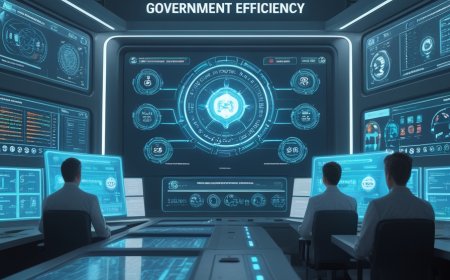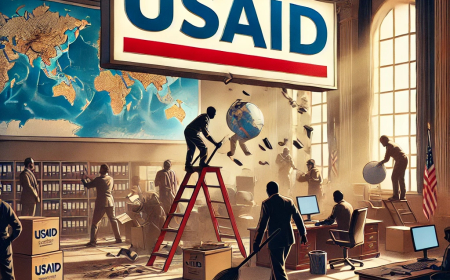Federal judge extends block on Trump putting USAID workers on leave
A federal judge on Thursday extended a temporary block on the Trump administration’s plan to place thousands of U.S. Agency for International Development (USAID) employees on leave while he weighs whether a further pause is warranted. Unions representing government employees sued to stop the shutdown of USAID's operations and restart the flow of foreign aid...

A federal judge on Thursday extended a temporary block on the Trump administration’s plan to place thousands of U.S. Agency for International Development (USAID) employees on leave while he weighs whether a further pause is warranted.
Unions representing government employees sued to stop the shutdown of USAID's operations and restart the flow of foreign aid frozen by President Trump, who has accused the agency of fraud and corruption to justify its imminent shuttering. Trump issued the executive order freezing aid for 90 days pending review on his first day in office.
U.S. District Judge Carl Nichols previously halted the Trump administration’s plans until Friday but said he would extend the block through Feb. 21. He intends to rule on whether to issue a preliminary injunction before that date.
However, Nichols appeared skeptical of the unions’ claim, repeatedly questioning why workers could not seek legal remedies against the government as their employer after they’ve been affected by the proposed changes.
“What is the irreparable harm to those employees?” he asked.
Karla Gilbride, a lawyer for the unions, called the administration’s efforts to swiftly shutter the agency an “unprecedented usurpation of power that does not belong to the executive branch.” She argued that, if allowed to move forward, the employees would have no agency to return to even if they won individual legal actions after the fact.
“Once the agency is dissolved, it cannot be put back together again,” she told the judge.
It’s part of the workers’ broader claim that the Trump administration’s actions are unconstitutional, since USAID is an independent agency established by Congress.
Throughout the arguments, Nichols repeatedly returned to whether USAID employees abroad would be put at particular risk if placed on leave — a point to which he seemed particularly sympathetic.
Gilbride said roughly one-third of USAID’s direct-hire employees reside abroad and are reliant on the government for basic living needs and, in some cases, protective measures in particularly high-risk countries.
Department of Justice (DOJ) lawyer Eric Hamilton repeatedly said the government planned to “take steps” to ensure employees would remain safe but could not detail the specific steps that would be taken. He also could not provide assurances regarding which benefits employees would retain if placed on administrative leave, which would be paid but for an undetermined amount of time.
The judge asked the government to find answers to those questions by Friday.
Hamilton argued that the administrative leaves under the Trump administration’s 90-day freeze amounted to a “personnel dispute” and emphasized that Trump campaigned on major foreign policy shifts and should be allowed to execute his agenda.
“In the end, plaintiffs want a federal court to put USAID back to where it was under a previous president’s foreign policy,” the DOJ lawyer said.
The Justice Department also noted that a waiver system has been implemented by the State Department intended to make critical exceptions to the rule, though the unions contend that program is not operating as it should.
Nichols’s “very limited” order that bars placing hundreds of USAID employees on administrative leave and recalling many from their posts around the world did not touch on the effects on contractors and nonprofits, which later sued separately over USAID’s dismantling.
The Trump administration disclosed late Wednesday that more than 200 contracts issued by USAID had been canceled since Tuesday morning. Former USAID Administrator Andrew Natsios signaled the cuts were dramatic, telling the House Foreign Affairs Committee on Thursday that he and his team cut only 80 programs over the course of a month during former President George W. Bush’s administration.
At a hearing Wednesday, a different federal judge heard arguments over whether the government should be temporarily barred from terminating contracts and grants.
The contractors and nonprofits that sued asked U.S. District Judge Amir Ali to temporarily block implementation of Trump’s order in full, a sweeping request that would stop in its tracks the dismantling of USAID. The judge has not yet ruled.
Taylor Giorno contributed.
What's Your Reaction?








































